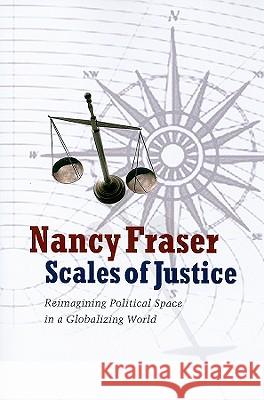Scales of Justice: Reimagining Political Space in a Globalizing World » książka
topmenu
Scales of Justice: Reimagining Political Space in a Globalizing World
ISBN-13: 9780231146814 / Angielski / Miękka / 2010 / 224 str.
Scales of Justice: Reimagining Political Space in a Globalizing World
ISBN-13: 9780231146814 / Angielski / Miękka / 2010 / 224 str.
cena 166,38
(netto: 158,46 VAT: 5%)
Najniższa cena z 30 dni: 161,47
(netto: 158,46 VAT: 5%)
Najniższa cena z 30 dni: 161,47
Termin realizacji zamówienia:
ok. 16-18 dni roboczych.
ok. 16-18 dni roboczych.
Darmowa dostawa!
Until recently, struggles for justice proceeded against the background of a taken-for-granted frame: the bounded territorial state. With that "Westphalian" picture of political space assumed by default, the scope of justice was rarely subject to open dispute. Today, however, human-rights activists and international feminists join critics of structural adjustment and the World Trade Organization in challenging the view that justice can only be a domestic relation among fellow citizens. Targeting injustices that cut across borders, they are making the scale of justice an object of explicit struggle.
Inspired by these efforts, Nancy Fraser asks: What is the proper frame for theorizing justice? Faced with a plurality of competing scales, how do we know which one is truly just? In exploring these questions, Fraser revises her widely discussed theory of redistribution and recognition. She introduces a third, "political" dimension of justice--representation--and elaborates a new, reflexive type of critical theory that foregrounds injustices of "misframing." Engaging with thinkers such as Jurgen Habermas, John Rawls, Michel Foucault, and Hannah Arendt, she envisions a "postwestphalian" mapping of political space that accommodates transnational solidarity, transborder publicity, and democratic frame-setting, as well as emancipatory projects that cross borders. The result is a sustained reflection on who should count with respect to what in a globalizing world.










